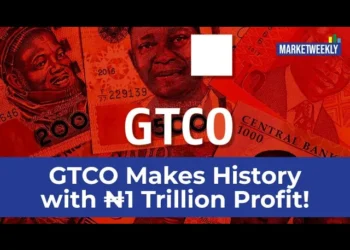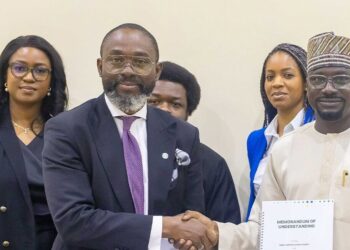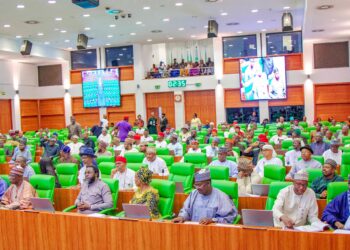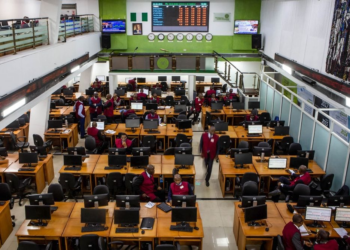In conjunction with the Institute of Directors Nigeria, Oando PLC hosted a high-level webinar on leadership strategies to navigate the impact of the COVID-19 pandemic, with the objective of bringing together key public and private sector contributors to the Nigerian economy, to discuss and proffer solutions on the way forward post the COVID-19 pandemic, taking learnings from already affected countries and industries.
The panel was moderated by Eleni Giokos of CNN Africa, and panelists were Dr Ainojie ‘Alex’ Irune (COO, Oando Energy Resources), Ini Ebong (Group Executive, Treasury & Financial Institutions, First Bank), Emmanuel Ijewere (Agriculturist and Accountant), Solape Hammond (Special Adviser to the Lagos State Governor on SDGs and Investment), Nkemdilim Uwaje Begho (CEO FutureSoft), Boye Olusanya (COO, Flourmills of Nigeria) and Dele Alimi Drector General/CEO Institute of Directors Nigeria.
Conversations touched on the peculiarities of the COVID-19 virus on the African continent. Growth is sub-Saharan Africa has been significantly impacted by the virus and is forecast to fall sharply from 2.4% in 2019 to -2.1 to -5.1% in 2020. According to the World Bank, this is the first recession to hit sub-Saharan Africa in 25 years. The number one risk factor in the region is social unrest due to hunger and not the virus itself. The issues have very quickly become more about security and hunger than the corona virus. The life line of the economy, the informal sector might be decimated due to the lockdown and governments are faced with a conundrum – to lockdown and save lives, or to protect the economy.
It was encouraging to see that the entire panel agree that the pandemic has given us the mental shift we needed and we must see this as an opportunity to rethink our strategies and retool ourselves. The pandemic, specifically in Nigeria has shown the cracks in every sector, and leaders must be willing to rethink and be collaborative and creative in designing the country’s future. The leaders required are those who understand technology as it is time to drive digital development and skillset across leadership and all the way down in the organization. It is time to rethink the local talent gap and build local capacity. Economic diversification is essential now more than ever as the oil sector has seen several weeks of decimation due to over-supply and lack of demand; with the sector being the largest contributor to Nigeria’s economy, this situation poses a real threat.
The private sector also has a huge role to plan in getting the economy and country back in shape post the COVID era, as it is obvious the government cannot do it alone. Public-private partnerships will be able to steer the nation towards recovery and a thriving economy.
Long term fixes though painful and tough is where leaderships efforts should be focused in navigating the impact of the pandemic.
During the session, Oando Energy Resource COO, Ainojie Irune announced the launch of the company’s initiative to end hunger, The Aggregator Program (TAP). Supported by the Oando Foundation, TAP was conceived and created by the #HumansOfOando as an aggregator platform for all COVID-19 related intervention efforts that are focused on the sustenance of livelihoods in less privileged communities across Nigeria, starting with Lagos State. A number of organizations have stepped forward to support the less privileged during this lockdown period, especially in high-density urban areas. Their help is largely centred around food items, whether cooked for the homeless, or raw items for households. These organizations cannot cover it all, and there’s no single point of coordination to assess their reach, identify gaps, and help amplify their efforts. That single point of coordination is TAP.
Click the LINK, to watch the full session.
EDITOR’S NOTE: This is a sponsored content.
























